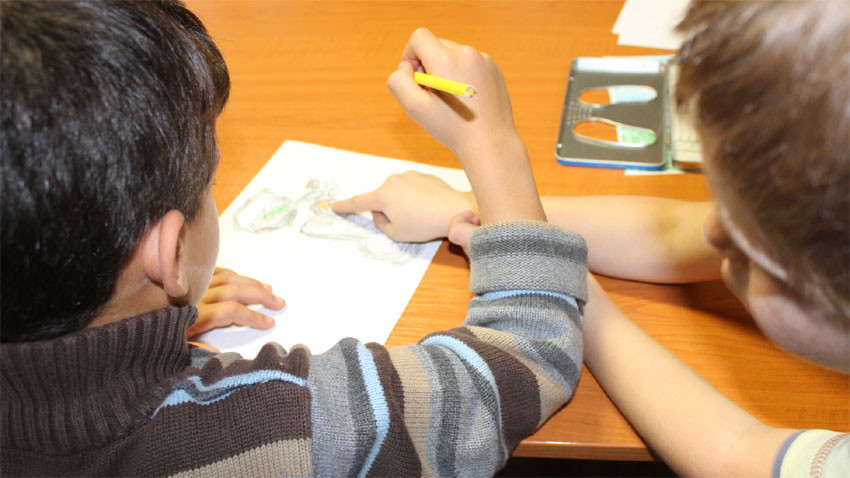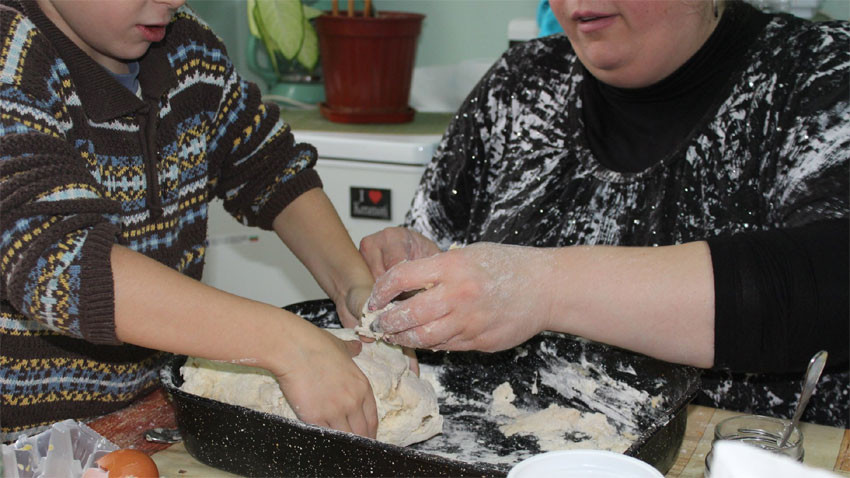
Before and during the Christmas holidays most TV programmes abound with romantic movies about happy families inspired by the spirit of Christmas. A number of TV adds promote various presents and price cuts. But this is also the time when we should open our hearts to the homeless and abandoned people, the families which live in deprivation and try to warm their hearts with our attention and care. The children who for one reason or another live outside their biological families are the ones who need our warm attitude and attention the most. These children are the ones who receive the so-called foster care:
Foster care is a very difficult job and the people who want to become foster parents are not expected to be perfectly prepared in the beginning, Bilyana Koycheva, Director of the Public Support Center with the Social Activities and Practice Institute told Radio Bulgaria. The foster parents practically learn almost everything during the work process. The foster parents in Sofia are employed by the Sofia Municipality which provides the financing. Our Public Support Center helps foster parents with supervision, a group for mutual aid, individual monthly meetings, home visits, etc. We have rich experience in this field and work not only with people who apply to become foster parents, but also provide support to the foster families after the accommodation of the children. We do it gratuitously, in order to further develop and improve this service in Bulgaria.

The purpose of foster care is to give a chance to children form their personality in a moment when they are deprived of parental support. This is what motivated Maria Blagoeva to become a foster parent in 2009. She met Remi, a child of Nigerian descent who had no relatives. Maria changed the child’s destiny and later Remi became a successful dancer and won a series of trophies, prizes and distinctions. Her foster child also opened his own dance school. Currently, Maria is a foster parent of a nine-year-old boy and his ten year-old sister. She has been taking care of them for six years now.
The boy is an outstanding pupil and his sister was born a Samaritan. She is very ambitious and organized and has clear plans for the future. She knows what she wants from life-she wants to become a nurse or a veterinarian. The boy is so wise, that sometimes I have the feeling that I am talking to an adult person. He and his sister attend dancing lessons at Remi’s dance school. They both study at a private school, because they could not get used to the public schools somehow.
What are the pros and cons of foster care?
Children can only benefit from foster care. As for foster parents, they must know that their lives change completely when they make this step. My life is divided in two parts-before and after becoming a foster parent. I have the feeling that I was a completely different person before becoming a foster parent. I made new friends and changed my lifestyle. I also have a biological son who sometimes tells me: Mom you did not take care of me as much as you do it with the foster children. In all honesty, these children need much more care and attention, because they have wounds to heal. We go through many joyful and sad moments together. We have common victories and suffer common defeats. We hold these children dear and there is no two ways about it.

Maria is a member of the National Foster Care Association and communicates with foster parents from all parts of Bulgaria. She knows that the so-called reintegration (the process of returning the kids to their biological family) is the biggest pain of the foster children. Children are taken out of their biological families due to some risks, and when they return to these families they enter again the same vicious circle and the effect of foster care is gone.
This is the big trauma for both the foster children and the foster parents, because foster parents are not allowed to see these children anymore. However, when a child goes back to parents who love it, or it is adopted and feels happy in its new family, the mission of foster care is completed. This is the purpose of foster care- to lend a helping hand to a child in need, to provide the necessary assistance and care and help it go to a place where it feels happy. Then, foster parents feel happy, too.
According to data of the Social Assistance Agency, at the end of June 2018 the number of foster families in Bulgaria amounted to 2.175. 144 foster families were registered in Varna district, 142 in Shumen, 134 in Veliko Tarnovo, 134 in Montana, 131 in Pleven, 128 in Haskovo and 114 in Pazardzhik. In Bulgaria’s capital Sofia the number of foster families amounts to 55 only.
English version: Kostadin Atanasov
Photos: Center for public supportAn innovation for the treatment of diabetic foot ulcer using the patient's own tissue and artificial intelligence has been implemented at the University Multi-profile Hospital for Active Treatment-Burgas. Bulgaria is the fourth European country to start..
Over 3.5 million Ukrainians have arrived in or passed through Bulgaria since the beginning of the war. Nearly 200,000 people have found temporary shelter in the country, announced Anna Tertychna from the Ukrainian Embassy in Bulgaria. She..
At the Bulgarian Embassy in London, Prof. Bettany Hughes presented excerpts from the new BBC series - Wonders of Bulgaria. Prof. Bettany Hughes is the author of two episodes of the documentary. Hughes is a historian, writer, author of..
Who said Bulgarians were grumpy pessimists? Take a stroll through Sofia's Christmas bazaars and meet the cheerful crowd. The festive decorations, music,..

+359 2 9336 661
